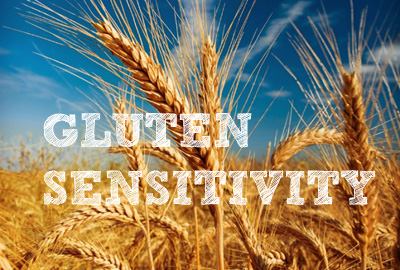Have you been tested Gluten Sensitivity?
Poor immune function, poor digestion, inflammation, and intestinal permeability (AKA – leaky gut) are common problems for those with gluten sensitivity. How does gluten break down immune function? The diagram below will help you understand this problem in greater detail. Below illustrates three primary mechanisms of how gluten can damage a healthy immune system:


Several years ago, researchers at the University of Maryland discovered that gluten directly causes a phenomenon known as intestinal permeability. This is other wise known as leaky gut. This process has been shown to lead to the development of additional food allergies followed by a progression to a hyper responsive immune system. This subsequently contributes to many autoimmune diseases.
Right behind your gut wall is a tissue called the GALT (Gastro Associated Lymphoid Tissue). Research shows that approximately 80% of your immune cells are harbored here. Once leaky gut develops, the floodgates open up and the GALT is bombarded with bacteria and other microorganisms, food proteins, and a number of intestinal toxins. Over time this immune assault can lead to inflammatory damage not only in the intestine, but in other tissues of the body as well.
Vitamin and Mineral Deficiencies
Gluten has been shown to impact intestinal absorption, but it has also been shown to damage other organs that aid in the digestive process. The stomach, liver, gall bladder, and pancreas all aid in the proper break down of nutrients from the food we eat. Gluten induced damage to these tissues can create both vitamin and mineral deficiencies. The loss of nutrient absorption and uptake contributes to countless problems. For example, vitamin B-12 deficiency is very common for patients with gluten sensitivity. This B-vitamin plays a major role in the repair and healing of the intestine. The gluten damaged gut needs vitamins and minerals to aid in the repair of the damage, but the existing damage is preventing the absorption of the nutrients necessary to help in the repair process. Unless addressed, it is a vicious cycle.
Altered Intestinal Bacteria
Research studies have shown the gluten can impact the type of bacteria in the intestines. Some animal research points out that this is especially true of genetically modified varieties of grain. There are a number of diseases associated with abnormal intestinal flora. Some diseases associated with this are SIBO (small intestine bacterial overgrowth), IBS, Ulcerative Colitis, and Crohn’s. Why are the healthy bacteria important? They serve to help your body produce B-vitamins and vitamin K. They also help your immune system regulate it’s ability to communicate and regulate the inflammation process. In addition, these healthy flora help to prevent pathogenic (disease causing) micro-organisms like H. pylori, yeast, parasites, etc.
How Do I Address All of These Problems?
In my years of private practice, I have helped my patients recover after years of gluten-induced damage. I use an individualized approach that focuses on supporting the body’s healthy response to inflammation. I focus on promoting improved metabolism and the recovery to a healthy gut.
By combining nutritional supplementation along with a specific diet, my program delivers the following benefits:
• Specialized oral supplements bind and neutralize foreign microbes (bacteria, parasites, etc) in the gut.
• Supplies a source of natural antibodies.
• Preserves gut wall integrity.
• Provides intestinal immunity.
• Reduces G.I. inflammation.
• Supports the body’s healthy response to inflammation.
• Supports lean muscle mass.
• Promotes improved protein metabolism.



